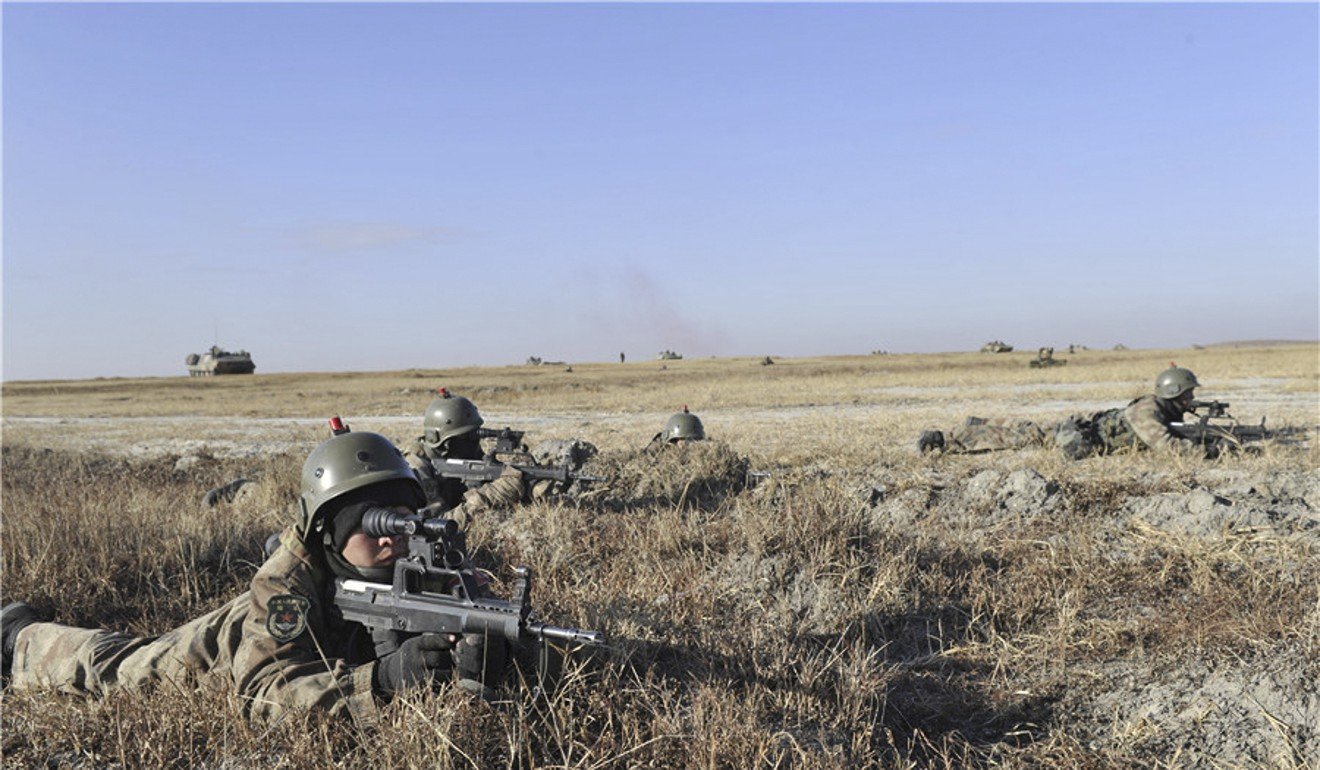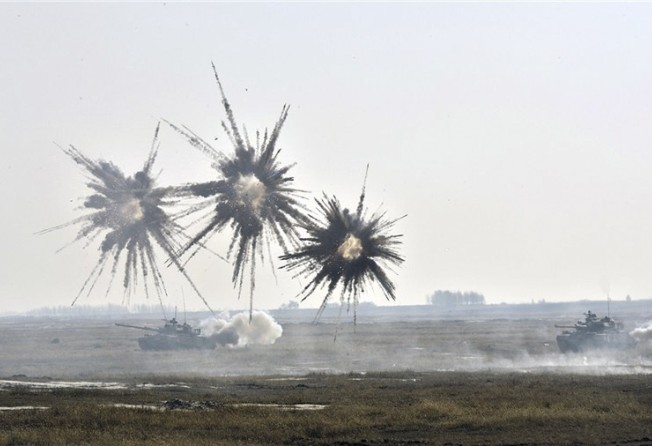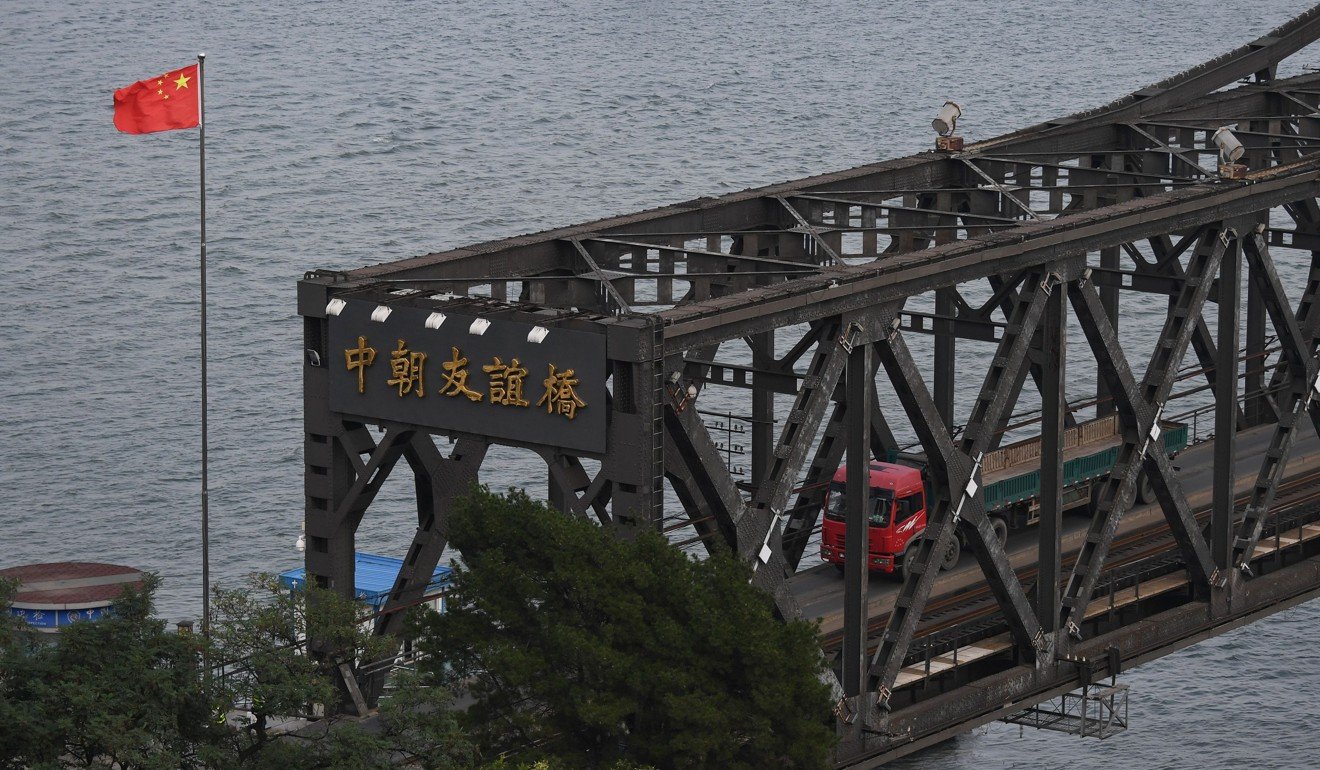
Chinese border troops hold drills in sub-zero temperatures amid tensions on Korean peninsula
Regular exercise aimed at improving combat skills in cold conditions comes after ‘temporary’ closure of main link with North Korea

Chinese border defence troops staged winter combat drills over the weekend amid ongoing tensions with neighbouring North Korea, and just after the main route between the two countries was closed.
The regular exercise is aimed at improving combat capability during cold weather. But analysts noted that the drills came as tensions between the two sides showed no sign of abating, despite a recent visit by Chinese envoy Song Tao to the reclusive country.
Soldiers from the 78th army unit of the northern theatre command – headquartered in Harbin, Heilongjiang province, and responsible for border security – conducted drills in sub-zero temperatures east of Inner Mongolia on Saturday morning, state media reported.
The exercise took place on the Horqin grassland, part of the Zhurihe military training base, as temperatures plunged to minus 17 degrees Celsius, according to the official PLA Daily newspaper.
Chinese President Xi Jinping travelled to the remote training ground earlier this year for the 90th anniversary of the People’s Liberation Army on August 1.

Drills included a mock battle between red and blue army units, including air strikes, electromagnetic interference and aerial reconnaissance.
It also focused on 27 weak points identified in previous winter exercises, such as firing inaccuracies and poor driving in snowy and icy conditions, official military news website 81.cn reported.
The exercise was aimed at strengthening combat skills in cold conditions and has been held annually for many years, said Chang Ching, a military expert at Taipei-based think tank the Society for Strategic Studies.
This year’s drills took place after the Chinese foreign ministry on Friday announced a “temporary” closure of the Sino-North Korean Friendship Bridge in Dandong, Liaoning province for maintenance work. The 944m bridge connecting North Korea’s light industrial centre Sinuiju to Dandong has been referred to as Pyongyang’s “economic lifeline”, across which 80 per cent of bilateral trade flows.
While the bridge has ostensibly been closed for repairs, the move sparked speculation that “the two sides are at odds with each other”, Chang said.

Euan Graham, director of the international security programme at the Lowy Institute, said China’s latest drills could reflect “a bit of game-playing on the Chinese side”.
“This is a perennial question,” he said. “Every time China-North Korea relations worsen, there’s always a report of China moving troops around the border.”
Graham pointed out that the recent exercises took place after China’s special envoy visited North Korea but reportedly did not meet leader Kim Jong-un.
Analysts have interpreted previous Chinese military action – including live-fire drills in the Yellow Sea in July and August – as potential warnings to players on the Korean peninsula, such as North Korea and the United States. Regional tensions escalated further this year as North Korea launched a series of missile and nuclear tests, prompting harsher international sanctions against the authoritarian regime. Washington has also ramped up pressure on China, North Korea’s largest trading partner, to do more to curb Pyongyang’s nuclear ambitions.
There has also been increased uncertainty after Pyongyang violated its decades-long armistice agreement with Seoul, when its soldiers shot and wounded a North Korean soldier defecting across the southern border.
In light of this, North Korea altered its deployment of troops on its border with South Korea, leading to an adjustment period with a “higher likelihood of accidental gunfire”, Chang said.